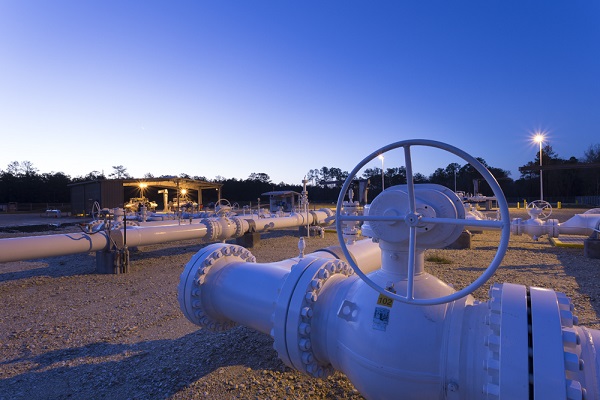Small Oil Producers Face Output Squeeze as Permian Pipelines Fill
(Reuters) - As pipelines out of the largest U.S. oil field reach capacity in the coming months, further depressing West Texas crude prices, smaller producers will have to slow or shut-in production, according to oil executives.

Soaring production in U.S. shale fields has driven output to a record 10.47 million barrels per day (bpd) this year and any cutbacks would hurt companies recovering from 2014's crude-price drop.
Oil in Midland, Texas now sells for about $6 a barrel less than the U.S. benchmark, compared with $1.50 less in January. It was $13 under the U.S. benchmark in May.
Halcon Resources Corp this week said it would remove a drilling rig in the Permian Basin next month because of "lower near-term realized oil prices in the Midland market," referring to the regional price.
Operators who lack guaranteed space on existing pipelines to the U.S. Gulf Coast would be forced to curtail production if the Midland price falls $10 to $47, said Steven Pruett, chief executive of Midland producer Elevation Resources. "People aren't going to be excited about running rigs if they can't move their crude oil," said Pruett.
Pipelines could begin rejecting new crude customers as early as next quarter, said Ryan Smith, director of research at consultancy East Daley Capital.
The Permian now produces about 3.27 million bpd. Takeaway capacity reached 3.3 million bpd in June, according to Genscape.
Scott Sheffield, chairman of shale producer Pioneer Natural Resources Co, said this week that overall Permian output could flatten in the 12-month period ending September 2019, when proposed pipelines are completed.
"A lot of independents will have to actually shut in production in the Permian to make room for our growth," Sheffield said, referring to Pioneer and other companies with guaranteed pipeline space.
The number of active drilling rigs in the Permian last week fell by four to 476, and another measure of activity - well completions - fell to 190 last week from 192, according to researcher Primary Vision.
"We think the number of completions in the basin does need to come down," said Colin Davies, an analyst at Bernstein.
Discovery Operating, a small oil company in Midland, currently plans to send a drilling rig into the Midland Basin, but if regional oil prices fall below $55 a barrel, the company will put the move on hold, said Jeff Sparks, Discovery's chief operating officer.
"If we're in the middle of drilling, we might end up with some uncompleted wells," he said. (Reporting by Collin Eaton and Liz Hampton in Houston; additional reporting by Ernest Scheyder in Vienna and Devika Krishna Kumar in New York; Editing by Lisa Shumaker)
Related News
Related News

- Enbridge Plans 86-Mile Pipeline Expansion, Bringing 850 Workers to Northern B.C.
- Intensity, Rainbow Energy to Build 344-Mile Gas Pipeline Across North Dakota
- Energy Transfer to Build $5.3 Billion Permian Gas Pipeline to Supply Southwest
- Enbridge Sees High Demand to Expand 593-Mile Canada-to-U.S. Gulf Oil Pipeline
- Strike Pioneers First-of-Its-Kind Pipe-in-Pipe Installation on Gulf Coast with Enbridge
- A Systematic Approach To Ensuring Pipeline Integrity
- 275-Mile Texas-to-Oklahoma Gas Pipeline Enters Open Season
- LNG Canada Start-Up Fails to Lift Gas Prices Amid Supply Glut
- Strike Pioneers First-of-Its-Kind Pipe-in-Pipe Installation on Gulf Coast with Enbridge
- Enbridge Sees High Demand to Expand 593-Mile Canada-to-U.S. Gulf Oil Pipeline




Comments